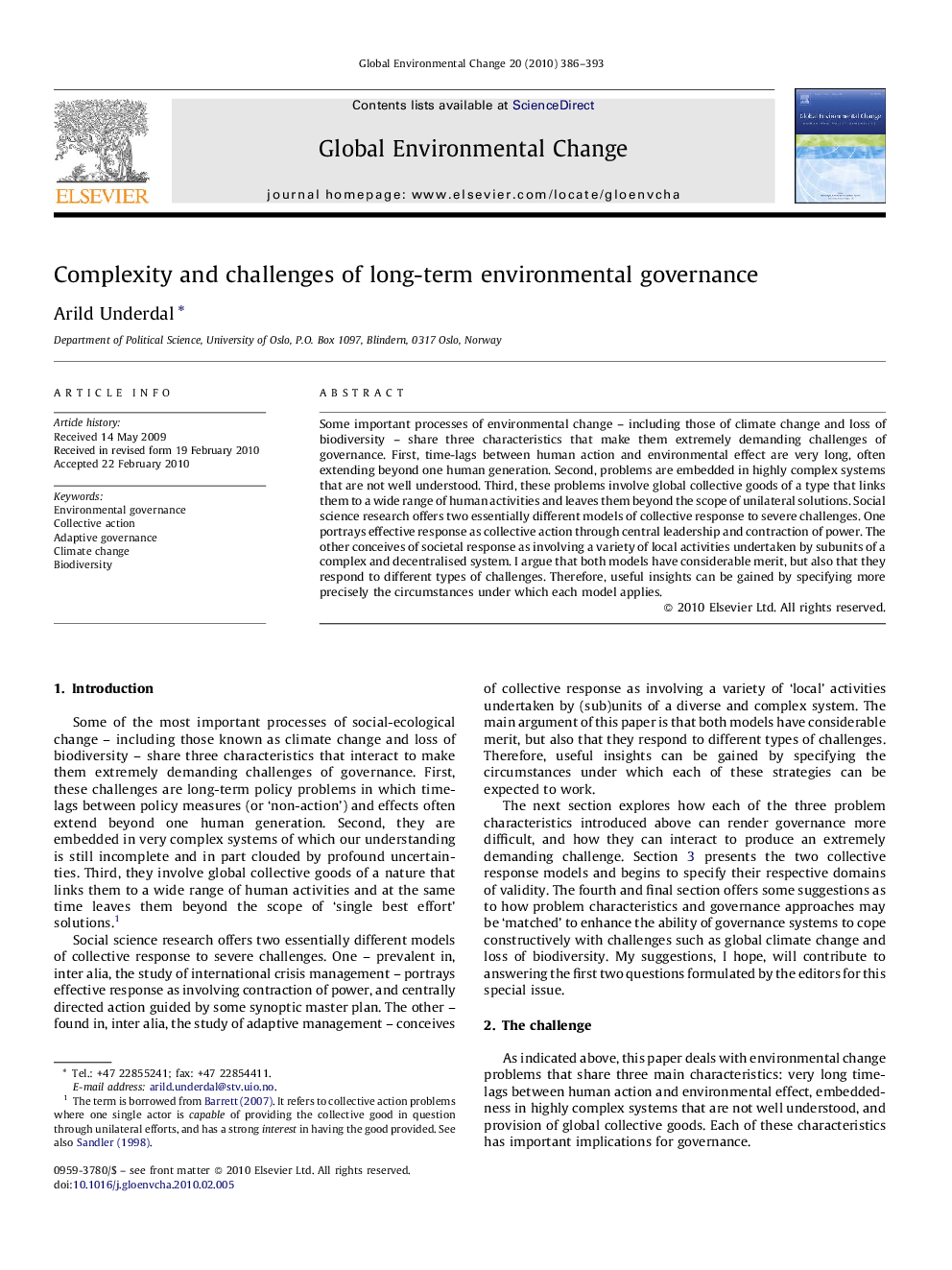| Article ID | Journal | Published Year | Pages | File Type |
|---|---|---|---|---|
| 1054819 | Global Environmental Change | 2010 | 8 Pages |
Some important processes of environmental change – including those of climate change and loss of biodiversity – share three characteristics that make them extremely demanding challenges of governance. First, time-lags between human action and environmental effect are very long, often extending beyond one human generation. Second, problems are embedded in highly complex systems that are not well understood. Third, these problems involve global collective goods of a type that links them to a wide range of human activities and leaves them beyond the scope of unilateral solutions. Social science research offers two essentially different models of collective response to severe challenges. One portrays effective response as collective action through central leadership and contraction of power. The other conceives of societal response as involving a variety of local activities undertaken by subunits of a complex and decentralised system. I argue that both models have considerable merit, but also that they respond to different types of challenges. Therefore, useful insights can be gained by specifying more precisely the circumstances under which each model applies.
